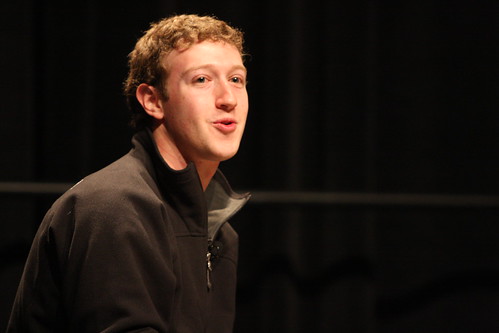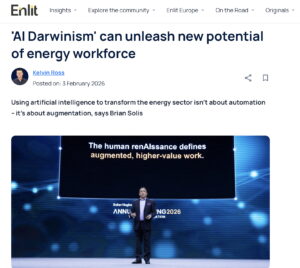
Mark Zuckerberg by Brian Solis
Mark Zuckerberg and 900 million of his friends hit Wallstreet with America’s largest IPO and has once again made history. Facebook’s first trade was $42.05 giving the social network a valuation of ~$115 billion. In the process, Zuckerberg became the 29th-richest man in the world with another half dozen employees also becoming billionaires. It’s also estimated that U2’s Bono will make more from his investment in Facebook than in his entire 30-year music career.
As the stock trades, investors will learn to Like Facebook as long as Mark and Co. continue to perform for those very investors who may or may not actually have a Facebook account and who may or may not even understand the future of media or the evolution of the human network. Zuckerberg has made it clear that he intends to spend his time, energy and that of his team to run Facebook “the hacker way.” Doing so, he believes, will steer Facebook clear from the fate that befell Myspace. To compete for the future, he will invest in the ongoing development of engaging user experiences. As I mentioned in an interview with Al Jazeera, Digital Darwinism threatens every company, including Facebook, “In an era of digital Darwinism you have to compete for relevance in real time, almost faster than real time.”
Certainly Zuckerberg will face challenges of balancing the company’s focus on investor versus user value and as an analyst, I will not only study its progress, I’ll continue to share my thoughts on where the company can invest its new found capital to effectively compete for relevance.
Let’s start here…
1. Mobile: Facebook must communicate its mobile strategy and how it plans to monetize engagement on tablets and smart phones. As of May 2012, time spent on Facebook via mobile devices exceeds that of traditional desktops. Facebook does not monetize mobile and with this stunning shift in Facebook engagement, the time to do so, was well, yesterday. Post IPO, Facebook must convey its vision and supporting business models for a single view, but dual platform community.
2. Search: To compete with Google in traditional search is fruitless. To compete against Google in social search, where the experiences of friends contribute to an evolving customer decision journey is lucrative. I do believe that search becomes an integrated part of a larger experience where Facebook has the potential to become something along the lines of a personal OS. The idea here is that the right information will find you based on how you curate your network with people, apps, and services. It’s where the online experience and all you do, starts on your personal dashboard.
3. Relevance: As you read, I believe that in order to not only survive Digital Darwinism, businesses must lead stakeholders toward new and rewarding markets. To compete for the future starts with competing for relevance. In almost every business interview I’ve conducted about Facebook, I’m asked whether or not Facebook is “cool” anymore. The discussion naturally progresses toward Myspace, which I feel is counter productive. Comparing Myspace with Facebook is like comparing Saab to BMW or Saturn to Ford. Competing for relevance becomes part of the leadership regime and it’s why on the eve of its IPO, Facebook chose to host an all-night hackathon rather than throw the usual rooftop party made popular in the days of Web 1.0. I guess in its own way, Facebook is trying to stay cool, or more importantly, stay true.
4. Building and Shipping: 1 hacker way isn’t just the way of way of life at Facebook, as the official company address, it’s literally the way to Facebook. Zuckerberg is creating a “build it and ship it” culture. This heads down, in the developer zone focus is part of the company’s now famous ability to innovate and execute. It is also now a potential liability as the company moves into the public and investor spotlight. Fail fast and learn isn’t just part of Facebook, it’s a mantra in silicon valley. However, Facebook must focus on more than just user experience, it must focus on people and behavior globally and locally. Google tends to take an algorithmic approach to development. One could argue that seeing the future through a developer lens and not one of digital anthropology, sociology or ethnography is why Google has wrestled with opportunities to socialize new and existing products. While Facebook builds and ships it must also continue to explore the intersection of technology and liberal arts to build and ship in ways that continue to define or redefine how people discover, connect, and share.
Facebook has every potential to truly earn Wall Street as both a friend and a fan. To do so however, will take the company’s continued investment in the social graph and now also the investor graph.
UPDATE 1: Facebook set a new trading volume record for U.S. market debuts, with over 515 million shares changing hands.
UPDATE 2: At $38, the IPO price was equivalent to more than 100 times historical earnings, compared with Apple’s 14x and Google’s 19x.
In honor of Facebook’s IPO and as my way of sharing my thoughts of whether or not Mark Zuckerberg’s attire will affect his ability to run a successful company, here’s a picture of my hoodie:
Connect with me: Twitter | LinkedIn | Facebook | Google+
The End of Business as Usual is officially here…







Advertiser jump ship infographic after first 7 days
Nice post Brian, exciting and historic day. One thing I would like to see is better communication for average users on “frictionless” strategy so they fully understand what info they are sharing. Also, more user input from masses on improving the user experience (instead of just brands input). However, not certain if Zuckerberg is more like Steve Jobs or Bill Gates when it comes to listening to customers evolving needs or simply telling them what they need. Thoughts?
Hope all is well!
PS I owe you a book review on EOB as Usual as it greatly inspired me personally and has contributed to my Startup teams mindset & approach.
@DSox:disqus Yes…I agree. I often think that Zuck is more like Jobs than Gates. He has a vision and is pushing to bring it to the market regardless of outside influence. That’s good and bad and hence this post. p.s. thank you for the post (when you get to it). I love hearing that it helps!
Great article. The “relevance” thing is important to me. If FB can find a way to deliver me what I want, when I want it and how (and can monetize and measure it for their advertisers), then I’ll be a future investor. Til then I’ll gladly watch it on the sidelines.
Maybe they could use some of that money to figure out how to stop the spammers and the scammers…..
Hi Brian,
This is stellar content and analysis from you as always. I am in violent agreement with you on social search being a significant opportunity for Facebook. And, equally as important, if they don’t develop some sort of search/timeline/newsfeed/profile capability they will miss a significant monetization opportunity and at least have some sort of defensive posture to ward of Google moving forward.
I believe they need to develop some sort of relevance DNA as you also pointed out. There is no argument they are the market leader in consumer content production, sharing and amplification. But, brands (businesses) need a deeper more meaningful way to engage with consumers via the platform. At some point I would think an acquisition or two that would extend the engagement level for businesses would make sense. Wildfire App comes to mind as an example.
And, there is a huge opportunity to give brands/businesses some way to provide automatic response customer support. Brands are certainly using Twitter as an “early warning” system today – Facebook has a significant opportunity building some kind of app that does sentiment analysis coupled with automated responses and trigger mechanism that alerts the community manager.
It’s easy to throw stones at customer service. But, as a parent, it is my fervent wish they would invest much greater resources in customer service issues relating to malicious activities by nefarious characters, kids, malcontents, etc.
Love your brand, blog and books……….
Cheers……..
Great Post thanks for sharing really interesting and informative article!
Much of the “hacker way” you describe is a bit easier as a private company… Still scrutinized, but not subject to drastic sell-offs on days when privacy concerns or the like hit the fan.
In the end, stock price takes care of itself, and I hope that Facebook remains willing to “move fast and break things”.
Another great post Brian and I think it’s interesting that
Mark knows they must continue to innovate. The purchase of clever mobile
applications and integrating them with Facebook’s core offer seems like the
best way to go. The purchase of Instagram and Glancee are clever acquisitions
and I think he needs to continue to do this and make Facebook part of
everybody’s lives.
The social search thing is true but isn’t Google moving that way anyway. I
wrote a post on what the Penguin update meant for internet marketers and PR
professionals: http://www.deaddinosaur.co.uk/news/google-penguin-and-what-it-means-for-public-relations-companies/.
My theory is Google has shifted its entire strategy towards making social
search part of its dna and moving away from links. So can Facebook compete
here, sure it can but it needs to stay ahead of the game and buy anyone that
has a clever idea. I wonder if Mark is checking out Pinterest just now or
whether he just thinks it’s another over hyped platform that only the early
adopters use for a brief period. I think he will watch which mobile apps fly
and bam he will buy them after 12 months – it’s a sound strategy that you can’t
really argue with.
Love the hoodie Brian…and ace post as always 🙂 Looking forward to reading your book
Thank you!